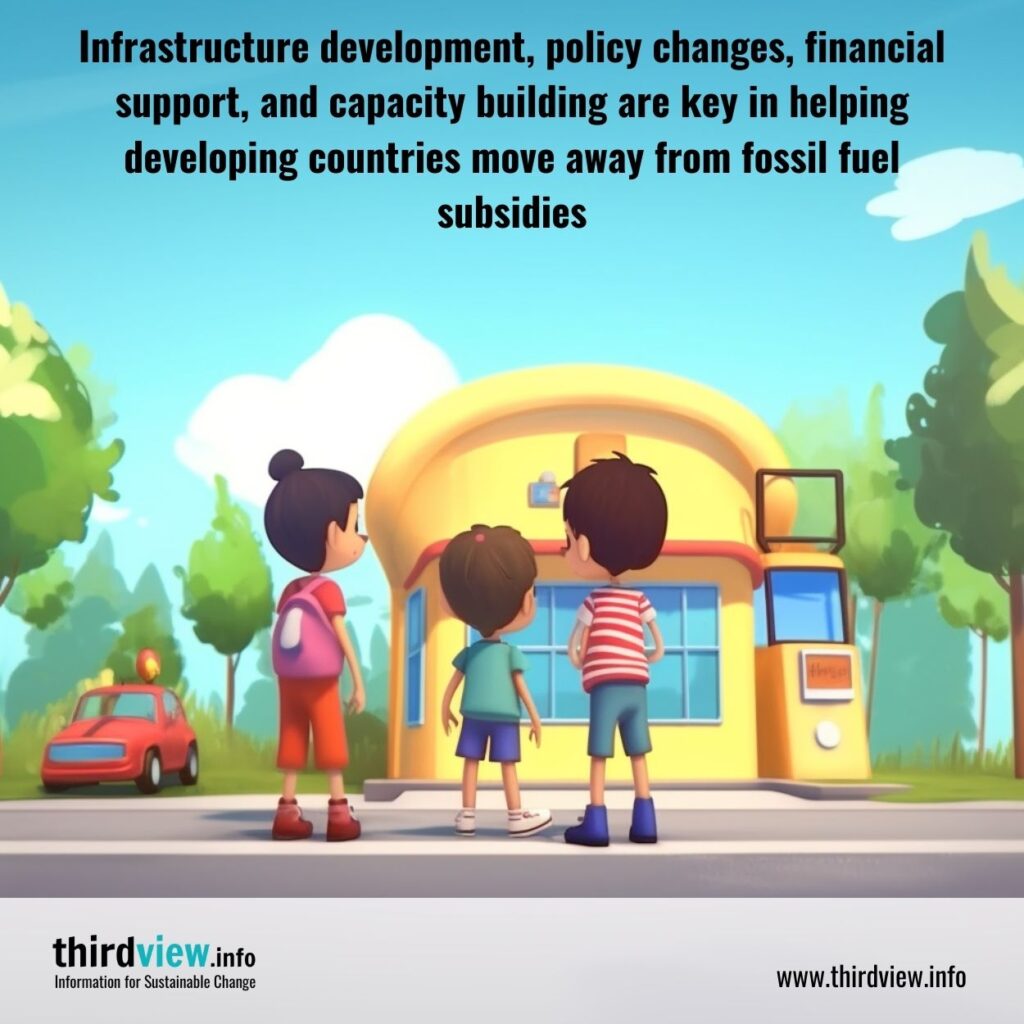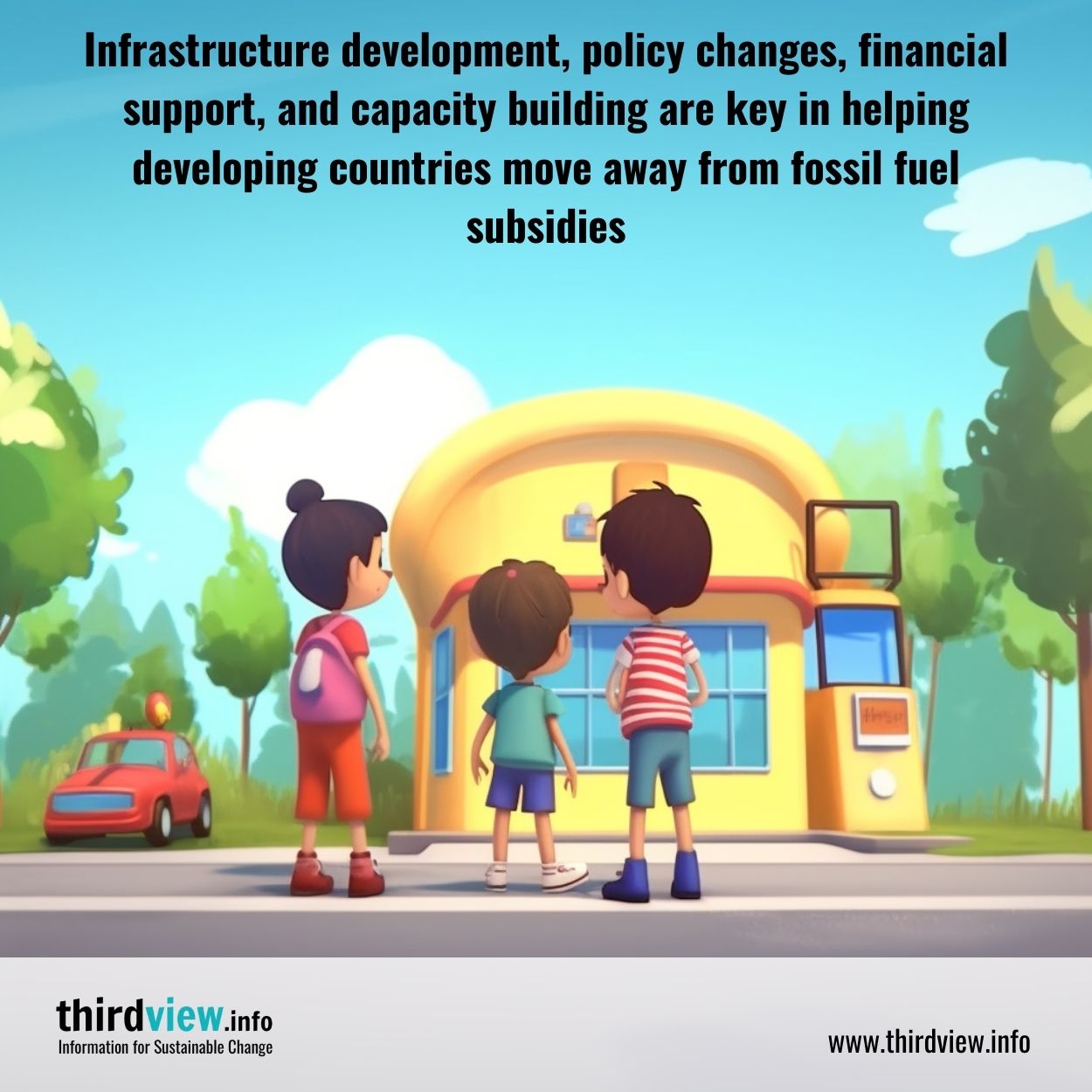A majority of the world’s population live in developing countries, and many of these countries rely on fossil fuels to power their economies. Fossil fuels have been seen as the only solution to addressing rising energy demand in these countries. However, with the increasing recognition of climate change, dependence on fossil fuels is now seen as a significant challenge. A key obstacle to transitioning away from fossil fuels in developing countries is the subsidies that support them. This blog post aims to explore how subsidies perpetuate fossil-fuel dependence and how we can support developing countries in transitioning away from them.
Infrastructure Support
A significant issue that developing countries encounter is the lack of infrastructure to support the transition towards renewable energy. There is a need to initiate critical infrastructure projects, such as the establishment of solar and wind energy farms, as well as grid integration. The availability of sustainable and affordable energy in rural areas will encourage the growth of businesses and industries, building up the local economies and consequently, help transition people away from fossil fuel subsidies.
Policy Changes
Developed and developing countries’ governments should work together to create policies that encourage the adoption of renewable energy sources. Eliminating fossil fuel subsidies and penalties for using non-renewable energy sources is on the first agenda. Many developing countries have yet to establish sustainable energy policies, much less enable their implementation. Working on policies integrating energy efficiency legislation, renewable energy standards, and targets can help create a supportive and adequate country-specific roadmap towards progress.
Financial Support
Most importantly, developing countries need financial support to ensure that transitions happen smoothly. Governments and private sector players can help to finance renewable energy projects through several mechanisms such as public subsidies, foreign aid, green bonds, and private investments. This support mechanism enables developing countries to balance their budgets while investing in renewable energy projects that bring about significant socioeconomic progress.
Capacity Building
Finally, developing countries need to be equipped with the knowledge and skills to transition from fossil fuels to clean energy. A supportive learning and training environment can educate locals and increase their technical support capacity. This shared knowledge enables them to maintain and operate their renewable systems, creating capacity building, and contributing to the proliferation of renewable energy adoption in developing countries.
Transitioning from non-renewable energy sources to clean ones for improving environmental, social and economic conditions requires global cooperation. The listed steps can help advance the process with awareness, supportive infrastructure, sustainable finance options, knowledge sharing, and policy support. Developed countries should take a leading role in this process to help developing countries implement renewable energy systems while abandoning fossil fuel subsidies, ultimately paving the way towards a sustainable future.


